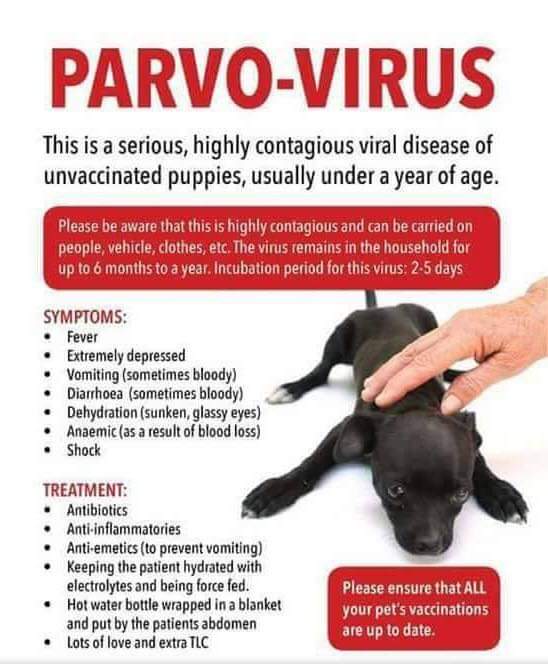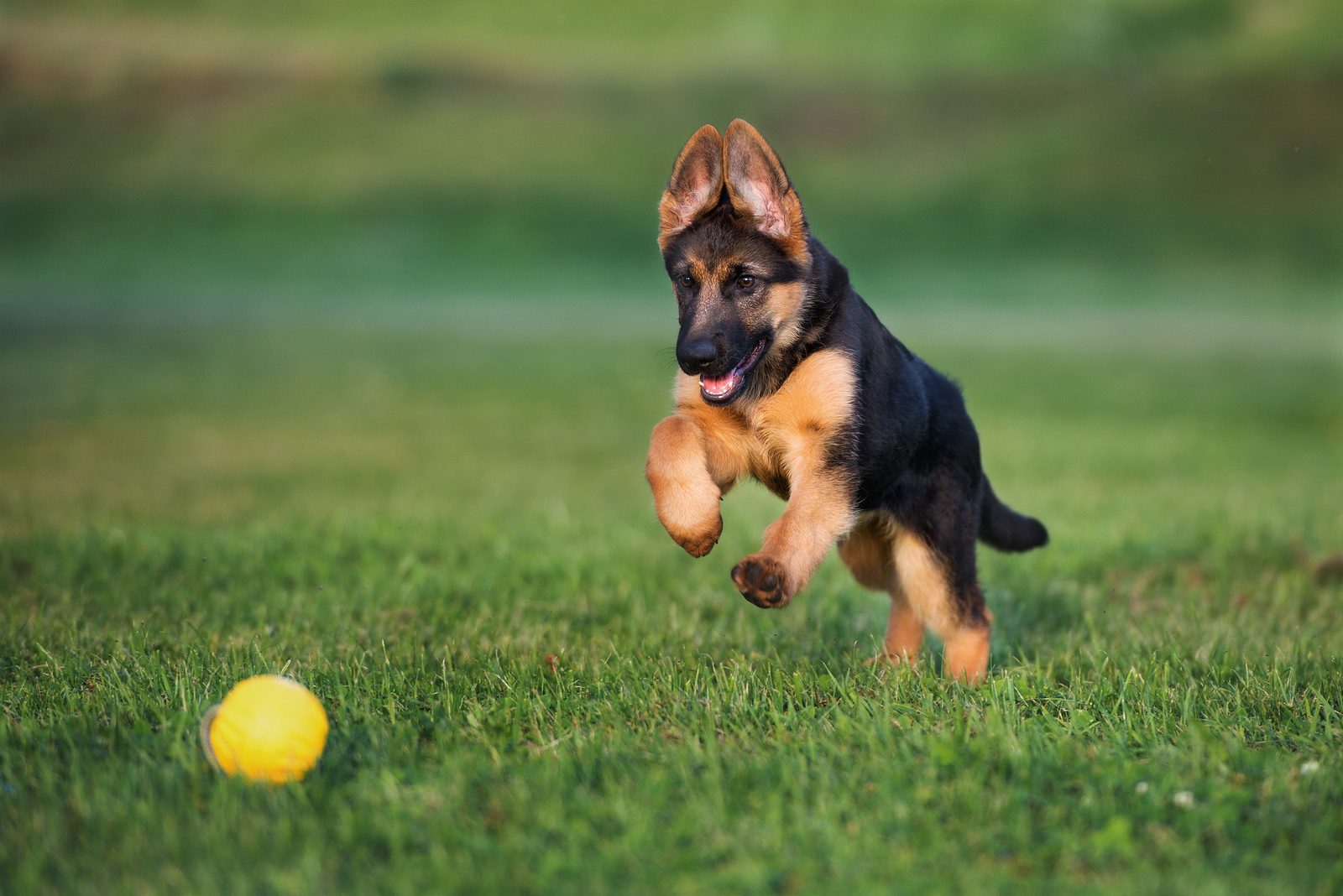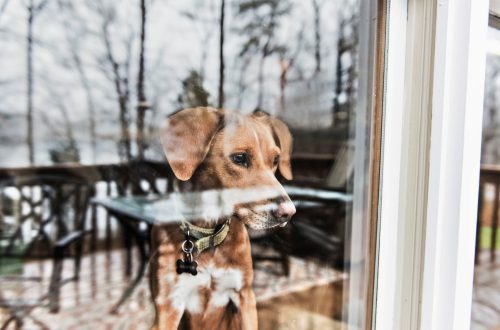
Parvovirus Infection in Dogs: Symptoms and Treatment
The last thing a new dog owner would like to hear from a veterinarian is that your puppy has parvovirus.
Parvovirus enteritis is an extremely contagious and potentially fatal gastrointestinal disease, especially in puppies. Young dogs are most at risk of contracting parvovirus enteritis because they have not yet been vaccinated against the disease. Canine parvovirus (CPV) is believed to have evolved from the feline panleukopenia virus that infects cats and some wild animals such as raccoons and minks after it mutated. The first cases of parvovirus enteritis in puppies were diagnosed in the late 1970s.
In this article, we have tried to tell you everything you need to know about this viral disease, its treatment and prevention.
Contents
Which dogs are more likely to get parvovirus?
Puppies between the ages of six weeks and six months are most at risk of contracting this virus. Also at risk are any other dogs that have not been vaccinated or that have not had all of their vaccinations. This is reported by Kelly D. Mitchell, veterinarian at the Toronto Emergency Veterinary Clinic and author of the article on canine parvovirus in the Merck Handbook of Veterinary Medicine. She also notes that certain dog breeds are more at risk than others, including:
- Rottweilers
- Doberman Pinscher
- American Pit Bull Terriers
- English Springer Spaniels
- German Shepherd Dogs
Dogs under six weeks of age are usually protected from parvovirus by antibodies found in their mother’s milk.

Signs and symptoms of parvovirus
If a dog has been infected with parvovirus, the first signs usually appear three to ten days after infection. This period is called the incubation period. Common symptoms your puppy may experience include:
- severe lethargy
- Vomiting
- Diarrhea or diarrhea (usually with blood)
- Heat
With parvovirus enteritis, dogs become severely dehydrated. The virus can also damage cells in the animal’s intestinal wall, causing life-threatening complications such as a low white blood cell count (leukocytpenia), severe systemic inflammation (sepsis), and a low red blood cell count (anemia). If you suspect that your dog has contracted parvovirus, you should take him to the veterinarian as soon as possible. In this case, time is one of the most important survival factors.
How do dogs get parvovirus?
This virus is highly contagious and enters the body most often through the oral mucosa, usually through contact with feces or contaminated soil. Parvovirus is very persistent and is able to “survive” for more than two months indoors or in the soil. It is resistant to heat, cold, humidity and desiccation.
“Even trace amounts of an infected animal’s feces can contain the virus and infect other dogs in the contaminated environment,” the American Veterinary Medical Association warns. “The virus is easily carried from place to place through the coat or paws of dogs, or through contaminated cages, shoes or other objects.”
Parvovirus persists in the feces of affected dogs for several weeks. Due to the severity and severity of the disease, it is important to disinfect any areas that may have been exposed to the virus and ensure that a dog that has had parvo is isolated from puppies or unvaccinated animals. Talk to your veterinarian about the steps to take if your dog may have been exposed to an infection.
How is parvovirus enteritis treated?
Dogs infected with parvovirus typically require hospitalization in an infectious diseases hospital under constant veterinary supervision for treatment, which includes drips (intravenous electrolyte solutions), antiemetics, and antibiotics. Your veterinarian will likely ask you to continue giving your pet oral antibiotic tablets after hospitalization until fully recovered to help the weakened dog fight off secondary bacterial infections.
As already mentioned, it is very important to seek medical attention as soon as possible if you suspect that your dog has contracted parvovirus. Dr. Mitchell writes that with proper and timely care, 68 to 92 percent of infected dogs survive. She also says that puppies that survive the first three to four days of illness usually make a full recovery.
What can be done to prevent parvovirus?
Puppies should be vaccinated as soon as they are old enough – there are special vaccines for this. In addition, owners of unvaccinated dogs should exercise extreme caution in places where there is a risk of exposure to this virus, such as a dog park. If there is a possibility of infection, isolate the dog until the veterinarian tells you that the threat has passed. You should also inform the neighbors if your puppy is sick. Their dog can catch parvovirus even if he just runs across your yard.
Like it or not, parvovirus enteritis is a terrible disease for dogs, especially puppies, which can be fatal. You can reduce your pet’s chances of contracting parvovirus by being a responsible owner, being considerate, and able to get the veterinary care you need quickly.





